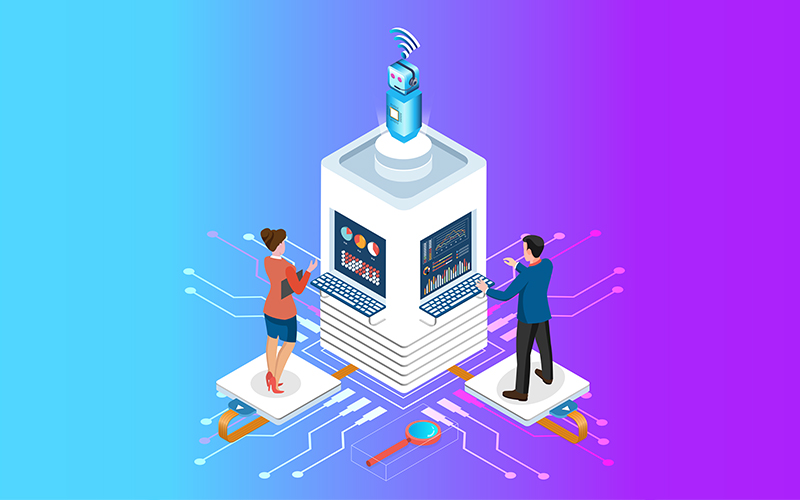The retail sector has seen an extraordinary change in the business landscape and day-to-day operations. Online shopping has removed several barriers in retail, and brands can now directly interact with the consumer. Retail is moving from a product-centric approach to being focused on customer experience and service. To remain relevant, retail businesses need to be agile, offer hyper-personalised services, predict trends, identify new opportunities for revenues, and have an end-to-end view of operations while providing superior customer service and optimising employee experience. The explosion of Generative AI (Gen AI) technologies has allowed the industry to re-imagine how business is done. According to a McKinsey study, Gen AI is expected to deliver a value of $400 billion to $660 billion annually in the retail and consumer goods industry alone.
How can leverage Gen AI in the retail Industry?
Drive hyper-personalisation: Brands need to develop a deep connection with the customer so that they can offer relevant products and services. Brands can leverage Gen AI in the retail industry generate consumer insights by collating disparate data sources and personalising content based on consumer segments. Such personalised content improves customer engagement and conversion rates. With Gen AI , brands can quickly try new ideas and personalised campaigns without having to invest large amounts of time, money and resources.
Enhance customer experience: In customer support, virtual agents can converse with customers to resolve initial issues, with minimal human interaction, resulting in efficient and responsive customer service. Virtual personal shoppers can be a game-changer for retail. Personalised recommendations for styles based on customer data and preferences can influence purchase decisions, and prevent abandonment. Conversational chatbots can engage with consumers. For example, a customer may search for a dress for a beach wedding, by stating, “I am looking for a dress for a beach wedding.” This may produce relevant images, and engage further with the customer with natural language conversation. AI chatbots can quickly extract relevant information from complex natural language statements, and summarise customer reviews across websites to help customers make decisions, and further draw in customers by presenting additional options for purchase.
Optimise supply chain and inventory: The global supply chain is a complex animal, and needs to rise up to meet customer expectations, a dynamically changing digital environment, and urgent calls for sustainability. While traditional AI has utilised historical data and statistical models to come up with predictions, trends and forecasts, Gen AI can create data points based on training data sets even where there are none available. This is especially useful for new products and services. There are several areas of the supply chain where Gen AI can become indispensable. Demand forecasting and planning, optimisation of inventory by analysing demand patterns and historical data, route optimisation with dynamic routing and predictive maintenance are just a few of the aspects where retail businesses can use Gen AI. Companies can also stay competitive with dynamic pricing strategies. Gen AI technology can be used to analyse market trends, competitor prices and demand patterns to optimise the pricing quickly and avoid losing customers to competitors on account of price.
Creative content and catalogue management: Text, images, videos and ad copies that echo the brand voice can be automatically created with Gen AI. With the right prompts, creative and personalised content for marketing can now be generated within minutes. For example, image generators can be used to create completely new images based on product photos for specific customer segments. Gen AI applications can also create ad copies for specific audience segments and social media platforms, and integrate with previous marketing campaigns to generate new content that echoes the brand voice. Catalogue management becomes more efficient. Automated image generation for products, sorting and classification help to update product catalogues and websites faster. Product descriptions can be created automatically, with the right SEO keywords, resulting in improved search results.
Transform product development: The retail sector is hugely competitive, and rapid product development is often necessary. Product teams can leverage Gen AI technology using both internal and external data and get deep insights and recommendations for product innovation. Multiple concepts for target demographics can be obtained in a few minutes, without the need for several designers and market researchers. For instance, by uploading the seasonal market trends, sales figures and customer reviews into a Gen AI application, a cosmetic manufacturer can get insights into the most popular lip colours for the upcoming season, and the new shades that should be developed. Images for these products can be obtained on the fly, and sent across to management for approval.
Optimizing Gen AI in Retail: Key Strategies for Success
The retail industry is all set to transform with Gen AI technology. A thorough analysis should be done to deploy the applications that would deliver the most business value. High-quality data is paramount for obtaining accurate results. A governance framework is necessary for the tools, platforms and data. Businesses must also ensure that there is human oversight where necessary and that ethical and legal obligations are satisfied when they use Gen AI applications. As the retail industry continues to beat the odds to meet high customer expectations and increased competition, it can leverage Gen AI responsibly to drive product innovation, increase customer satisfaction and improve productivity.







